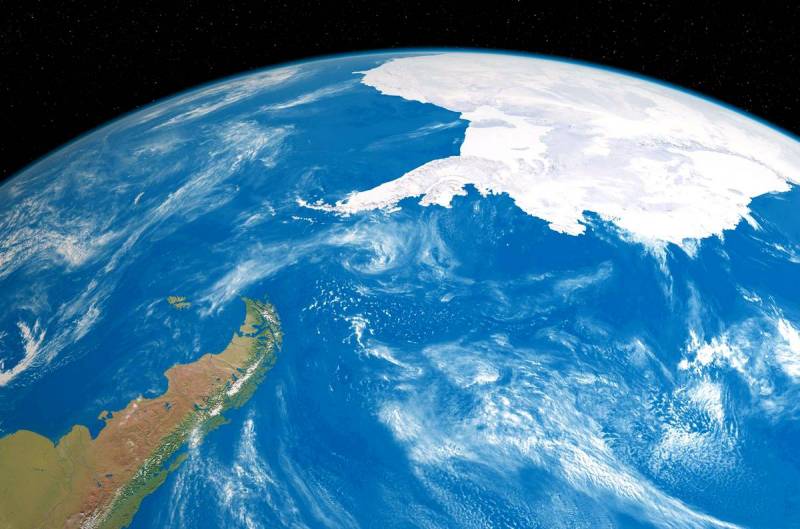Where did so much water come from on Earth?
Probably the most valuable resource on our planet is water. Without it, life on our planet would not have been possible, because it forms the internal environment of any living organism, including humans. We are not able to live without liquids for more than three days, and the loss of 15-20 percent of water can lead to death.
Water reserves on Earth are simply colossal. But if we recall the history of the origin of our planet, it turns out that the presence of such an amount of water here contradicts the laws of physics.
It is considered established and undeniable that the Earth arose from a protoplanetary disk, which is a cloud of hot gas and dust. He was red-hot for the first few million years. When the surface formed, it was in molten form due to constant collisions with cosmic bodies. The center of the earth is still in this state.
Even if there was some water on Earth, it should have evaporated under the influence of high temperatures.
It turns out that the young planet, which we today call the Earth, was absolutely waterless.
Recently, the American scientific journal Science Advances published a new hypothesis on the occurrence of water on Earth. It says that earth's moisture has a cosmic origin.
The authors of this version do not question the fact that the earth's surface was originally absolutely dry. But they believe that later water came to our planet along with asteroids. This hypothesis has been known for a long time. In parallel with it, there is a version according to which water fell to the surface of the planet from its bowels through volcanoes.
But lately, more and more evidence and arguments have appeared in favor of cosmic theory.
Hayabusa's Japanese space mission in 2010 was a great success. She managed to deliver samples of particles collected from the surface of the asteroid Itokawa.
Using an ion microprobe, they found microscopic particles of moisture in low-calcium pyroxene delivered from far space. Previously, this mineral was considered anhydrous. Moreover, the water in this breed turned out to be much more than expected.
A comparative analysis of the isotopic composition of hydrogen contained in water from Itokawa turned out to be identical to hydrogen in the composition of the earth's water. According to researchers, this indicates that it has a common source of origin.
It turns out that the minerals absorbed water from the protoplanetary disk and retained it.
The assumption is logical, but one question remains. How did moisture stay in the mineral at ultrahigh temperatures?
Studies of samples from an asteroid have given an answer to this question. Computer simulation showed that the mineral, even under such conditions, loses no more than ten percent of its moisture content.
Even if the conducted studies are not able to prove the indisputability of the cosmic hypothesis of the occurrence of water on Earth, they significantly change our idea of outer space. It turns out that there is much "wetter" than we thought before.
The Earth was originally anhydrous
Water reserves on Earth are simply colossal. But if we recall the history of the origin of our planet, it turns out that the presence of such an amount of water here contradicts the laws of physics.
It is considered established and undeniable that the Earth arose from a protoplanetary disk, which is a cloud of hot gas and dust. He was red-hot for the first few million years. When the surface formed, it was in molten form due to constant collisions with cosmic bodies. The center of the earth is still in this state.
Even if there was some water on Earth, it should have evaporated under the influence of high temperatures.
It turns out that the young planet, which we today call the Earth, was absolutely waterless.
Two theories of the appearance of water on Earth
Recently, the American scientific journal Science Advances published a new hypothesis on the occurrence of water on Earth. It says that earth's moisture has a cosmic origin.
The authors of this version do not question the fact that the earth's surface was originally absolutely dry. But they believe that later water came to our planet along with asteroids. This hypothesis has been known for a long time. In parallel with it, there is a version according to which water fell to the surface of the planet from its bowels through volcanoes.
But lately, more and more evidence and arguments have appeared in favor of cosmic theory.
The search for cosmic moisture
Hayabusa's Japanese space mission in 2010 was a great success. She managed to deliver samples of particles collected from the surface of the asteroid Itokawa.
Using an ion microprobe, they found microscopic particles of moisture in low-calcium pyroxene delivered from far space. Previously, this mineral was considered anhydrous. Moreover, the water in this breed turned out to be much more than expected.
A comparative analysis of the isotopic composition of hydrogen contained in water from Itokawa turned out to be identical to hydrogen in the composition of the earth's water. According to researchers, this indicates that it has a common source of origin.
It turns out that the minerals absorbed water from the protoplanetary disk and retained it.
The assumption is logical, but one question remains. How did moisture stay in the mineral at ultrahigh temperatures?
Studies of samples from an asteroid have given an answer to this question. Computer simulation showed that the mineral, even under such conditions, loses no more than ten percent of its moisture content.
Even if the conducted studies are not able to prove the indisputability of the cosmic hypothesis of the occurrence of water on Earth, they significantly change our idea of outer space. It turns out that there is much "wetter" than we thought before.

Information